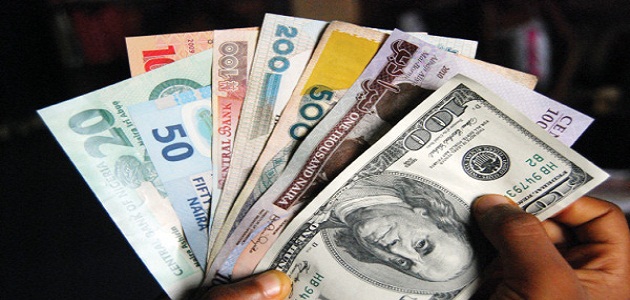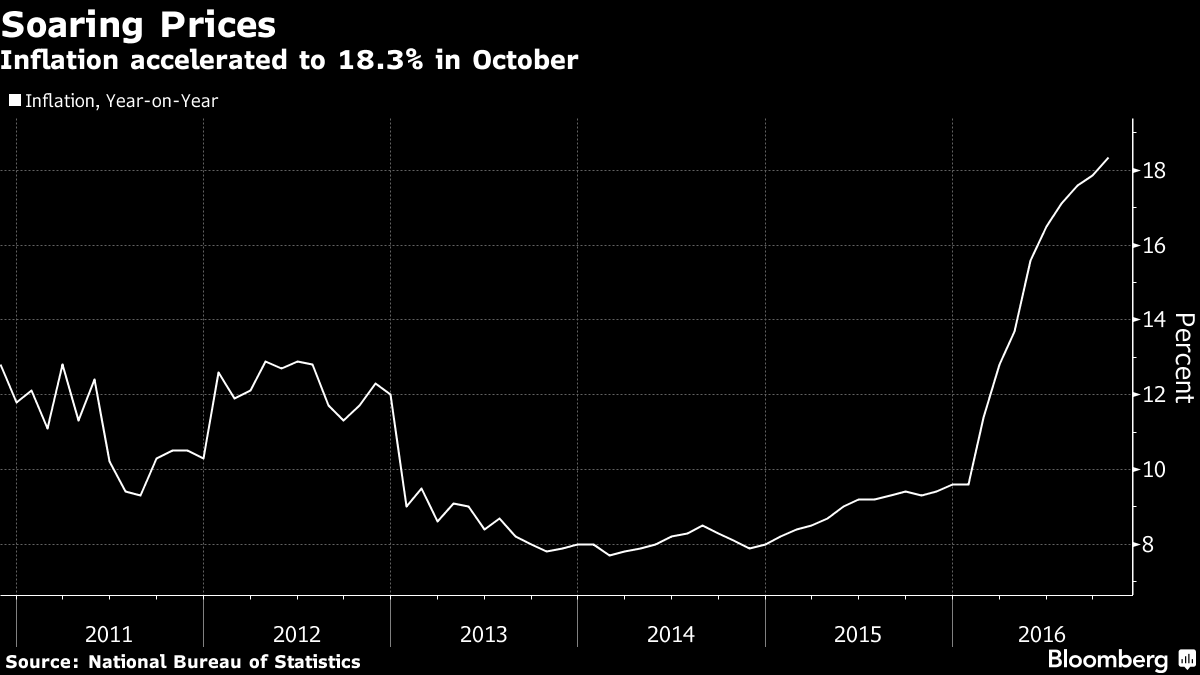
Nigeria’s central bank left its main lending rate unchanged for a second consecutive meeting as it tries to balance the needs of an economy that’s shrunk every quarter this year with an inflation rate that’s at the highest in more than a decade.
The Monetary Policy Committee held the benchmark rate a record-high 14 percent, Governor Godwin Emefiele told reporters Tuesday in the capital, Abuja. That was in line with the forecast of 18 of 20 economists surveyed by Bloomberg. One predicted a 100 basis-point increase and one said borrowing costs would be raised by 200 basis points.
“The risks to the economy remain highly elevated on two fronts: price and output,” Emefiele said. “However, considering the importance of price stability, and being mindful of the limitations of monetary policy in influencing output and employment, the committee decided unanimously in favor of retaining the current stance.”
Nigeria’s economy has been battered since the price of oil, its main export, started crashing in mid-2014 and crude production fell due to militant attacks. Gross domestic product shrunk 2.2 percent year on year in the three months through September, marking its third consecutive quarter of contraction, the National Bureau of Statistics said Monday. Inflation accelerated to 18.3 percent, the highest rate in 11 years, in October as exchange-rate weakness persisted on the prices of goods and services.
“The decision by the central bank sends a message that the economy is not out of the woods,” Kunle Ezun, an analyst at Ecobank Transnational Inc. in Lagos, said by phone. “Most of the problems to growth are not monetary driven; they are structural and need fiscal authorities to address.”
Despite the naira losing almost 40 percent of its value against the dollar since the central bank removed a peg on June 20, foreigners have remained wary of re-entering local markets, claiming that the central bank is still manipulating the exchange rate. The black market rate of around 465 per dollar compares with the official rate of 315 and the government recently started threatening informal money-changers with arrest in an effort to bring down the street price of dollars.
“What the central bank has done is to address price stability, which is its priority,” Damilola Akinbami, an analyst at Financial Derivatives Co. in Lagos, said by phone. “However, until we address the dollar illiquidity we are still going to have exchange rate problems.”
The central bank is opposed to plans outlined in a draft law to jail people for hoarding foreign exchange, Emefiele said. The proposed changes to legislation, which say authorities should be able to jail for as long as two years anybody holding dollars in cash for more than 30 days, or fine them 20 percent of the amount, were published on the website of the Nigerian Law Reform Commission last week.
“If we are contacted, or whenever it becomes an issue for suggestion, we will advise against a clause that forbids people from keeping dollars if they choose to or a law that says people should be jailed for keeping foreign currency,” he said.


Be the first to comment